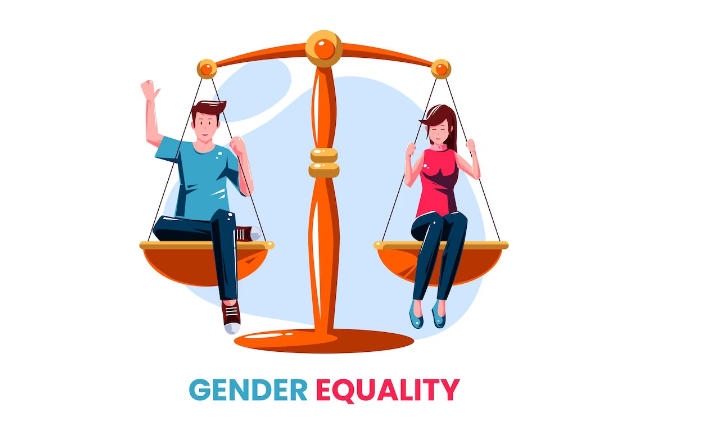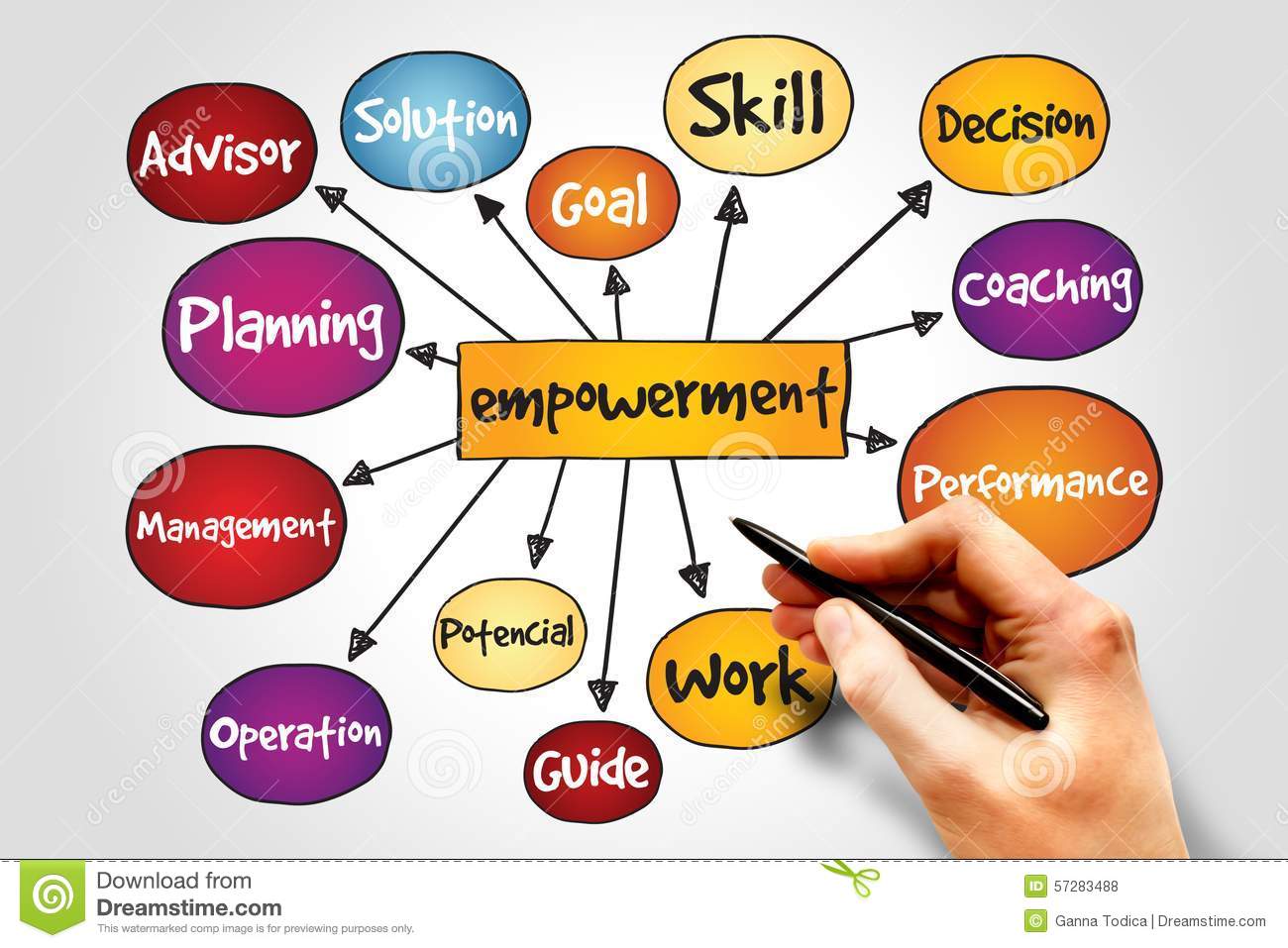Awareness about Gender Equality and Empowerment women and girls
- Gender Equality

Source: freepik.com.
Gender equality, is the state of equal ease of access to resources and opportunities regardless of gender, including economic participation and decision-making; and the state of valuing different behaviors, aspirations and needs equally, regardless of gender. [1] According to United Nations (UN) gender equality isn’t just a central basic freedom, yet a fundamental starting point for a peaceful, prosperous and equitable world. There has been progress over the course of the past many years, yet the world isn’t on target to accomplish orientation balance by 2030[2]. UNICEF highlighted that gender equality “means that women and men, and girls and boys, enjoy the same rights, resources, opportunities and protections. It does not require that girls and boys, or women and men, be the same, or that they be treated exactly alike.”[3]
In general gender equality is more equivalent portrayal, it is unequivocally attached to women’s rights, and requires eliminating harmful practices against women and girls, including sex trafficking, femicide, wartime sexual violence, and other oppression tactics[1]. Despite numerous international agreements upholding their human rights, women continue to be significantly more likely than males to be impoverished and uneducated, according to UNFPA. They have fewer opportunities for home ownership, credit, education, and employment. This is partially due to outdated stereotypes that categorize women as homemakers and childrearing rather than family breadwinners.[4] They are far less likely than men to be politically active and far more likely to be victims of domestic violence.”[5]
According to UNICEF, many females in schools receive less support than boys to pursue their chosen academic interests. Gender differences in learning and skill development are also a result of discriminatory teaching methods and educational resources. As a result, compared to 1 in 10 boys, almost 1 in 4 girls between the ages of 15 and 19 are neither working nor enrolled in an educational program or training. In comparison to 1 in 10 boys, roughly 1 in 4 girls between the ages of 15 and 19 are not in employment, education, or training worldwide. 13 million females between the ages of 15 and 19 worldwide, or nearly 1 in 20, have undergone forced sex at some point in their lives. [6] Those factors above violet women and girls right about their safety, wellbeing or health and education. The Steps Forward (TSF) organization had initiate different initiative to eradicate and taking care to women right particularly those who are refugees, immigrants and asylum seekers from South Asian Countries in USA as our main aim. We encourage all country to take into consideration gender inequality particularly vulnerable people (women and girls) by strengthening economies and builds stable, resilient societies that give all individuals the same opportunity to fulfill their potential.
- Empowerment women and girls

Source: www.dreamstime.com
Dr. James Emmanuel Kwegyir-Aggrey (1875–1927), a renowned Ghanaian scholar and one of the best African educators of the 19th century, is credited with the saying “If you educate a man, you educate an individual. But if you educate a woman, you educate a nation”.[7] It implies that empowering a woman economically and through education, often creates rippling effects that positively affect communities in bigger and more endearing ways. With a focus on recognizing and resolving power disparities and granting women more control to manage their own lives, UNFPA emphasizes that gender equality requires the empowerment of women. Women’s empowerment benefits entire families and these advantages frequently trickle down to younger generations. [5]
There are many ways to empower women and girls; in this article, we’d like to highlight seven of them, including:
- Provide the ticket to a better life by giving them clean water
Did you know that every day, 200 million hours are spent by girls and women obtaining water that is frequently contaminated and harmful to their health, instead of going to school? They could do so much more if they had access to clean water, including go to school, play, spend time with their family, and launch a business, to mention a few. You may assist in giving a girl access to clean water and open up new opportunities for her.
- Support girls and women in crisis
Millions of girls are victims of crimes like child labor, trafficking, and abuse. Your donation to the Steps Forward (TSF) will be used to protect girls and women by providing trained local staff with the tools they need to deliver training, education, counseling, healthcare, small business loans, and other programs that uplift both girls and women and boys, assisting in the break-up of cycles of gender-based violence.
- Mentor a girl close to home
Teen violence, underperforming schools, and poverty are obstacles for many females growing up in developing country particularly in Asiatic and African. By offering your services as a tutor or mentor, you may make a difference in the life of a girl in your neighborhood.
- Invest in a small business owner
You can get in touch with tenacious women business owners who are hoping to realize their dream of starting or growing a prosperous company with The Steps Forward (TSF) microloans. All they require is a modest loan. Even better, your donations are recycled repeatedly to aid more people and have a greater impact once the loan is repaid.
- Use your voice to help keep girls in school
Girls who stay in school and complete their secondary education benefit much, both personally and financially. They have greater health and are able to look after both themselves and their kids. They are more active members of their communities, live longer, marry later, make more money, and marry later. Nevertheless, 129 million girls between the ages of 6 and 17 are not in school. Your backing of the keeping girls in school act can encourage more teenage girls worldwide to attend school and acquire a top-notch education.
- Help a new mom
The most crucial period of a child’s existence is the first 1,000 days, or from conception to age 2. Giving new mother necessities like a bassinet, cloth diapers, blankets, and a container for clean water, and soap can help save children’s lives all over the world. Also, training in vital newborn care is made possible by your gift.
- Tell the women in your life that you care
Do you want to inspire and empower women and girls? Start immediately at home, at work, and in your neighborhood. Send a thank-you card to the instructor who inspired you years ago; get coffee for the new parent in your office who is finding it difficult to juggle it all; or express your gratitude to your own sister, daughter, or mother.
The Steps Forward (TSF) organization encourages everyone to take their action to empower women and girls for empowering the nation through any possible dimension. We applaud the United Nations for co-chairing the regional coordination mechanism’s thematic working group on gender equality and women’s empowerment with UN Women. In the Asia-Pacific region, ESCAP serves as a key inter-agency coordinator for the UN system, providing analysis and supporting collaborative action on regional priorities to advance the global agenda for gender equality and women’s empowerment.
Reference
- Gender Equality, what does it mean? – Egalité Femmes/Hommes. (n.d.). Gender-Equality.essec.edu. http://gender-equality.essec.edu/home/gender-equality-what-does-it-mean#:~:text=Gender%20equality
- United Nations. (2022). Gender equality and women’s empowerment. United Nations Sustainable Development; United Nations. https://www.un.org/sustainabledevelopment/gender-equality/
- Wayback Machine. (n.d.). Web.archive.org. https://web.archive.org/web/20171020152744/https://www.unicef.org/gender/files/Overarching_2Pager_Web.pdf
- Hobby, T. S. (2000). Independence Day : Reinforcing Patriarchal Myths about Gender and Power. The Journal of Popular Culture, 34(2), 39–55. https://doi.org/10.1111/j.0022-3840.2000.3402_39.x
- Gender equality. (2018). Archive.org. https://web.archive.org/web/20190520233303/https://www.unfpa.org/gender-equality
- UNICEF. (2018). Gender equality. UNICEF; UNICEF. https://www.unicef.org/gender-equality
- Jacobs, S. M. (1996). James Emman Kwegyir Aggrey: An African Intellectual in the United States. The Journal of Negro History, 81(1-4), 47–61. https://doi.org/10.1086/jnhv81n1-4p47

great post indeed!
Thank you! I’m glad you enjoyed the post. I appreciate your feedback.